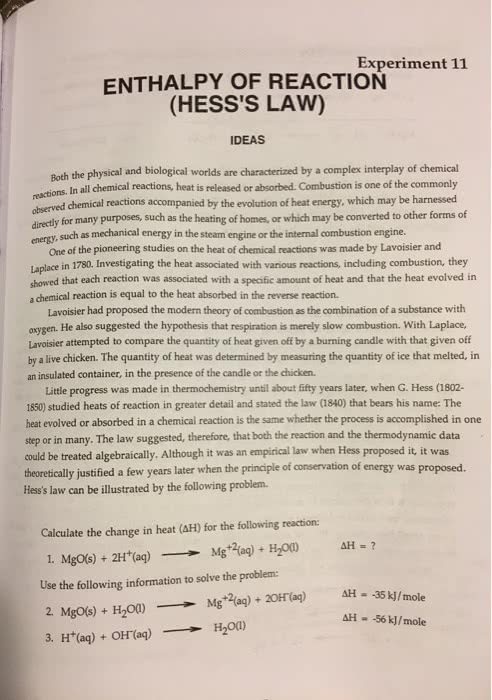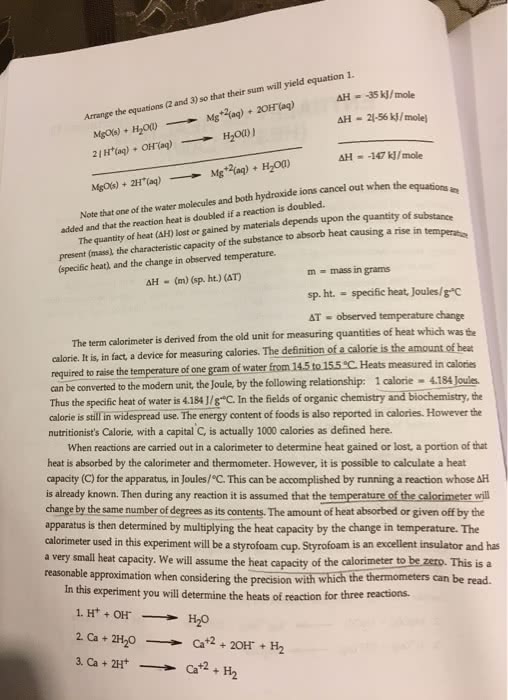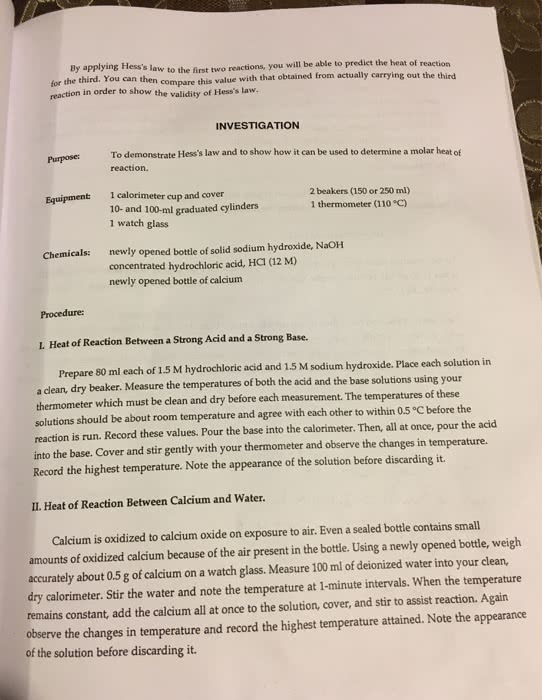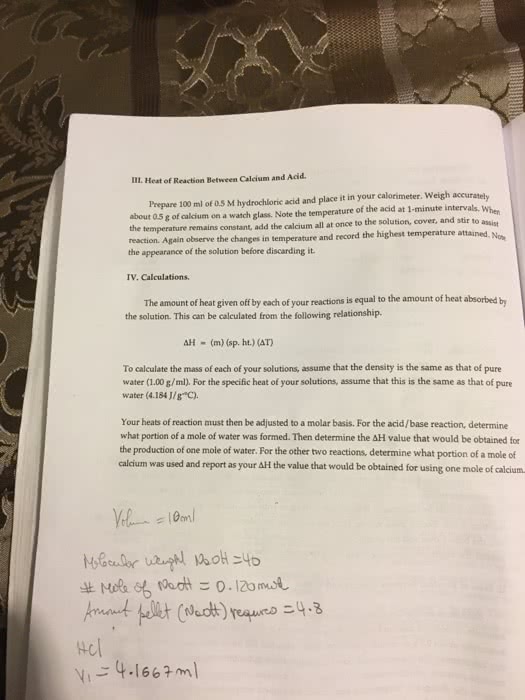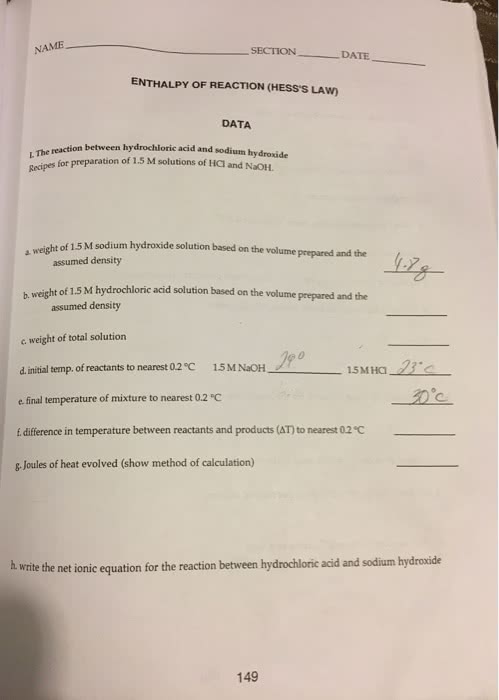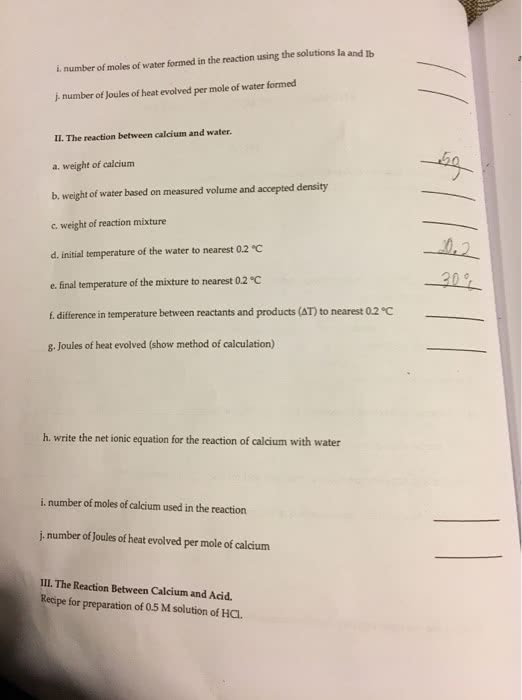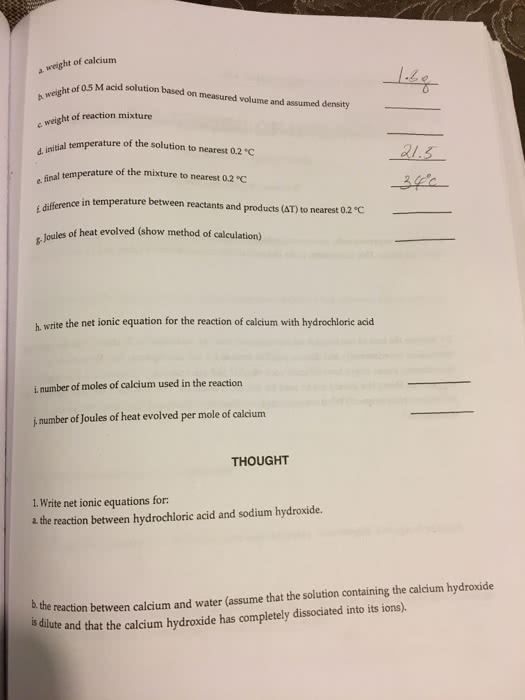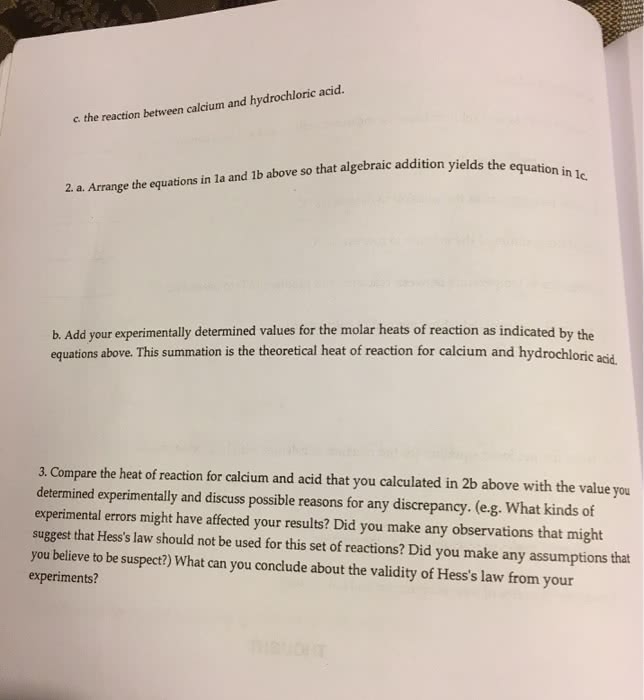For which system below would quantum effects be leastnoticeable?
-The collision of two N2 molecules in a gas, whichchanges the rotational energy of both
-Polarization of the electron density of ethanol resulting inexcitation of vibrational motions
-An electron-sized particle moving in a 1 m3 box asthe temperature decreases by 10 degrees
-A hydrogen atom being struck by a UV photon
We have dealt with two different ensembles, canonical andmicrocanonical. Which of the following statements is inaccurateregarding these ensembles?
-The canonical ensemble is always considered as a subset of alarger reservoir, which acts as the surroundings.
-The microcanonical ensemble is defined to have constant energy,volume, and composition.
-The microcanonical ensemble is a smaller subset of microstatesof the canonical ensemble.
-The canonical ensemble is generally more useful than themicrocanonical for chemical processes.
Which statement below is most correct regarding the partitionfunction of an ensemble?
-For a given temperature, the high-energy contributions to thepartition function are more heavily weighted.
-Once a partition function is defined in a specific ensemble, itis valid in all other ensembles.
-It tells us the numerical order of the energy levels for agiven system.
-It provides a measure of the energy levels available to asystem at a given temperature.
Consider a cup-carrier from your favorite take-out restaurant.The carrier can hold four cups, and you have to place two cups (onelarge, one small) into the carrier, with no preference forposition. How many microstates can you form with two cups in thefour spaces?
-12
-8
-16
-6
Boltzmann's definition of the entropy was a breakthrough inunderstanding statistical thermodynamics. What is the bestdefinition of Boltzmann's entropy?
-The Boltzmann entropy is a count of the total distinctmicrostates in a system.
-The Boltzmann entropy is a measure of the randomness of anensemble.
-The Boltzmann entropy is a count of the accessible energylevels at a given temperature.
-The Boltzmann entropy is a measure of the useful work availablein an ensemble.
Our canonical ensemble was defined such that the temperature,volume, and number of particles were each held constant. In termsof the Legendre transform, which thermodynamic potential isfundamental in the canonical ensemble?
-The Helmholtz energy
-The internal energy
-The Gibbs energy
-The enthalpy
The equipartition principle can be used to estimate the constantvolume heat capacities of gases. Under which circumstances wouldthe full equipartition heat capacity most closelyapproximate the measured value of CV?
-A sample of N2 gas at 373K
-A sample of propane gas (C3H8) at roomtemperature
-A sample of water vapor at 373K
-A sample of Br2 vapor at room temperature
Which factor below does not contribute to the rotationalpartition function of a molecule?
-The rotational quantum number
-The nuclear and electronic spin states
-The rotational constant(s)
-The temperature of the molecule
We were able to reduce the vibrational partition function froman infinite series to a function of a single exponential, but onlyapproximately. Which approximation below was NOT used?
-We assumed that the vibrational energy can be expressed asv?e.
-We assumed that the energy levels were close enough to allowintegration instead of summation.
-We assumed that the vibrational motion is purely harmonic.
-We assumed that the separations are relatively small, due tohigh temperature or lower vibrational constant.
The derived partition function for an ideal gas depends on allof the physical parameters listed below except for which one?
-Molecular symmetry
-The temperature of the molecules
-The volume of the sample
-Mass of the molecules
Deriving the translational partition function is more involvedthan deriving the rotational and vibrational partition functions.Which statement below is NOT a reason for this?
-There are so many possible translational energy levels, thatthe integral does not converge to a finite value.
-The integral of translational states for a single particle mustbe taken over a 6-dimensional hypervolume.
-The degeneracy of translational states is not obvious becausethey lie so close in energy.
-Translational degrees of freedom involve interactions betweenall molecules in the sample, whereas rotations and vibrations donot.
The connection between the Equipartition Principle and thetranslational partition functions helped to demonstrate that thetemperature of a system depends on the easily excited degrees offreedom. Why should this be true?
-In systems with easily excited degrees of freedom, a change inthe entropy requires energy changes on the order of thermalenergy.
-In systems with easily excited degrees of freedom, smallincreases in the pressure make excited states more accessible,
increasing the temperature.
-In systems with easily excited degrees of freedom, thepotential energy is no longer dependent on the temperature of thesystem.
-In systems with easily excited degrees of freedom, thermalenergy is sufficient to allow one to treat the energy levels as acontinuum.
The connection between the Maxwell-Boltzmann distribution andthe translational partition function allowed us to betterunderstand the distribution of speeds. Which statement below is NOTa consequence of the translational partition function?
-The population of the lowest speeds is very small.
-The pressure of the gas increases as the velocityincreases.
-An increase in the temperature will result in shifting thedistribution to higher energies.
-The population of the highest speeds is very small.
When dealing with quantum energy levels, there are severalimportant factors to consider. Which concept below is NOT importantto quantum energy levels?
-The set of quantum numbers
-Degeneracy
-The deBroglie wavelength
-The ground state


